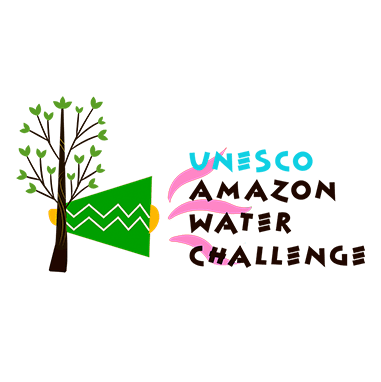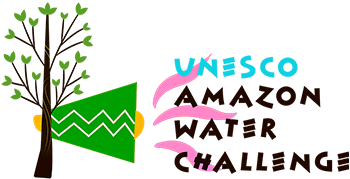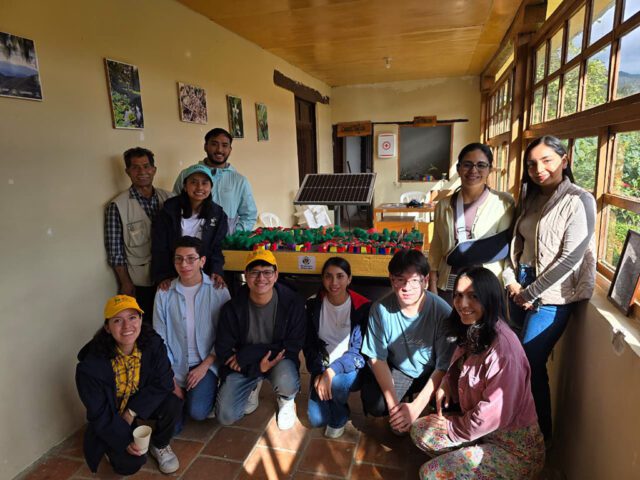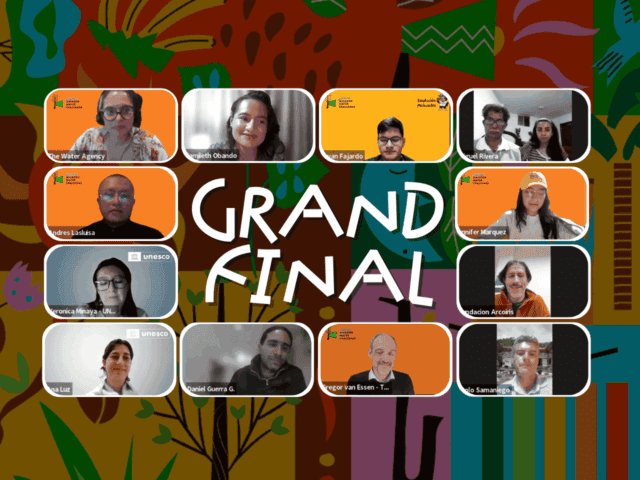As part of the implementation stage of the UNESCO Amazon Water Resilience Challenge 2025 – Ecuador Edition, three winning teams transformed their ideas into action with the support of seed funding and expert mentorship. The EcoAcción Malacatos team, based in Loja, embraced an innovative edu-communication approach to reconnect people with their river and promote collective environmental responsibility.
Reviving the River Through Education and Creativity
In the city of Loja, the Malacatos River – once a clean and vital waterway – has suffered from pollution, sedimentation, and neglect. Limited public involvement left much of its care to local authorities, while community awareness of its importance steadily declined.
EcoAcción Malacatos sought to change this relationship through dialogue, art, and technology. By engaging citizens directly, the project encouraged them to see the river not just as a resource, but as a living system that speaks to their daily lives.
A Participatory and Educational Journey
The team organized six participatory workshops on water, waste management, and biosphere conservation, combining learning with creative expression. Community members took part in clean-up mingas, river walks, and collaborative art activities that reflected their environmental commitments.
A highlight of the project was the construction of an interactive, solar-powered scale model of the Malacatos River, equipped with sensors that measure turbidity, temperature, and flow levels. This model was later transferred to the Podocarpus–El Cóndor Biosphere Reserve, where it continues to serve as a permanent educational tool for visitors and students.
Building a Culture of Care
Through these creative and inclusive actions, the project strengthened citizens’ environmental awareness and inspired long-term stewardship of their river. The collaboration between the Universidad Nacional de Loja, Fundación Arcoíris, Reserva de Biósfera Podocarpus–El Cóndor, Cátedras UNESCO UTPL, CGIRS Loja, Áreas de Conservación Municipal y Uso Sostenible (ACMUS), and the Red de Jóvenes Podocarpus–El Cóndor ensured that the initiative would continue to grow beyond the initial implementation.





